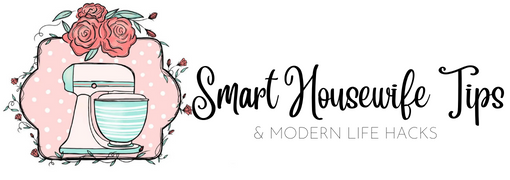Mice are a very common problem once the autumn and winter come. They tend to seek shelter and food in your home. Make sure you prevent them from coming into your home. How do you prevent mice?
To prevent mice from entering your house, fill any holes that provide mice an entrance to your home, keep your food in air-tight glass containers, clean up your clutter, and keep your landscape light.
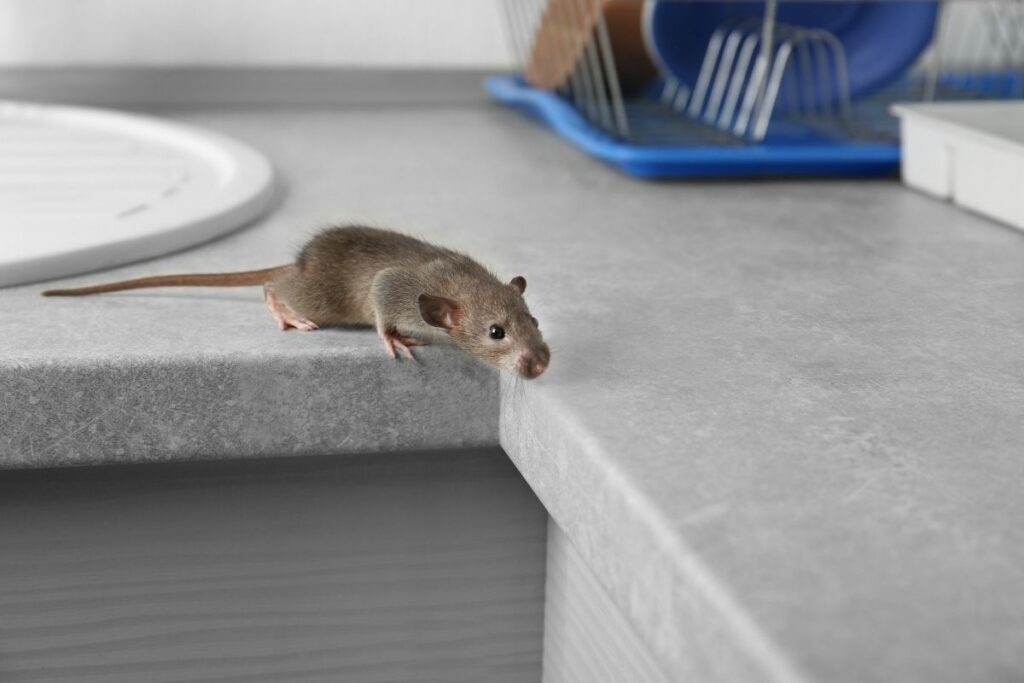
Unfortunately, sometimes mice still find a way to enter your home. You should get rid of mice as soon as you realize that they are in your house because they can cause huge problems. Here is how to deal with mice infestations.
How do you prevent mice?
If there are claw or chew marks on and around food packaging and shelves, or you find food debris on shelves or in unusual places, and droppings that look like small oblong specks and can collect in cabinets, under sinks, or near appliances it means you have a mice infestation.
Some other signs of mice infestations are scratching noises in the walls at night, odd pet behavior such as barking, alertness or pawing under appliances and furniture, and nests made of shredded paper, string, fabrics, or other pliable materials.
If you saw one mouse, that means that you have more hiding in your house.
But why are mice dangerous? After all, they are small and cute.
Mice can make you really sick. A common house mouse is less dangerous for your health than a deer mouse, but that doesn’t mean that a common house mouse can’t spread diseases. They can spread hantavirus, salmonellosis, and listeria through their urine, droppings, saliva, and nesting materials.
Mice multiply very fast. Even if only two mice entered your home, there will be much more very soon. They breed all year long, and one female can produce 5 to 10 litters a year. On average, there are 6 to 8 baby mice per litter, which means that a family of 6 mice can multiply to 60 in about 3 months.
They can literally burn your house down. Mice love chewing on wires and when they are in your walls and attic they have full access to your household electrical wiring. They will nibble on it to keep their teeth short, as well as to gain access to a place that the wire might be blocking. Once a wire is bare, there is a greater risk of it sparking a fire. Around 25% of all fires attributed to “unknown causes” in the U.S. are most likely started by rodents.
Getting rid of mice completely is hard and will take a long time. The most common way of getting rid of mice is by using mouse traps that you can find in stores. There are several types of mouse traps.
Mice bait stations
These traps are poisonous, so they probably aren’t the best option if you have small children or pets.
They are very cheap, and they kill mice quickly when used as instructed. The drawback of using this mouse trap is that you will have to search your house for dead mice as they won’t be killed the second they consume the poison. It is also possible that the mouse will spit out the poison.
Kill snap mice traps
These are traditional snap mouse traps. They are cheap, easy to use, and they kill quickly. The drawbacks of using a kill snap mice trap are that it can be quite visually disturbing, and it is not very safe to use it in homes with small children and pets.
Electronic kill mice traps
These are electronic, concealed mice traps. They have a high success rate, and they kill quickly using electric shock. They are reusable and enclosed, so you don’t have a view of the dead mouse. It is a much safer option for homes with pets and children. The drawback of using this kind of trap is that it is much more expensive than the last two options.
Live cage mice traps
These are traps that trap mice in a cage, but they don’t kill them. Some drawbacks are that they require more monitoring, you have to drive the mouse at least a mile away from your house to release it, and it is not recommended by CDC because of the risk of disease transmission from the live mice.
Mice glue trap
This is a trap that makes mice stuck until they die. You have to put some rodent glue on a few pieces of carton and leave it in places where the mice are hiding. It is inconvenient if you have pets, as they can get stuck to it. It is the least humane way to kill mice as they suffer and die from starvation.
Can you do it environmentally friendly?
If you would like a more environmentally friendly approach to getting rid of mice, try some of these methods.
Peppermint oil and cloves
Mice hate strong smells. You can try to drive mice away by lightly soaking some cotton balls in oils from one or more of these foods and leave the cotton balls in places where you’ve had problems with mice. You can also make cheesecloth sachets from dry cayenne, mint, and whole cloves and leave them in places where mice tend to hide, such as under beds and corners.
Zap with beeps
Since mice hate high-pitched noise, get some electronic units that emit a high-pitched beeping sound. The effect will wear off with time, but it is very effective at first. Try using it with some other method to successfully get rid of mice.
Borrow a cat or a fox terrier
If you don’t have a cat or a fox terrier, ask one of your friends to rent or borrow their cat or dog for a few days. They usually only kill them but don’t eat them, so be on the lookout for dead mice around the house.
Use kitty litter
You can make mice leave your home by sprinkling your cat’s kitty litter around your house. Mice will then avoid the scent of a predator and seek a safer shelter.
Can you do it with stuff you already have at home?
If you can’t go to the store to get a mouse trap right now, there are some things you can do to get rid of mice with stuff you have at home.
Mousetraps
Make your mousetraps by leaving out cooked bacon, peanut butter, or chocolate, with small fishing bate inside it. That way, once the mouse eats it, it will die.
Another way to make a mousetrap with something you have at home is to leave some soda on a dish somewhere so mice can reach it. Mice like the sweet smell of soda so they will drink it, and the carbon in the soda will kill them.
Similar to soda, antifreeze has a sweet smell, but it is highly poisonous, which means that it will kill mice once they drink it.
If you don’t want to kill them, but would rather make them leave, you can spray your house with air freshener. Mice hate anything that has a strong smell, so the smell of air freshener will surely drive them away.
If you don’t have an air freshener in your house, you can use ammonia. It can be found in liquid used for cleaning windows.
When you have finally gotten rid of mice, you have to clean up after them. It is very important that you clean up their nesting or spots they have defecated and urinated on because of the risk of diseases that are associated with mice.
You shouldn’t vacuum or sweep mouse droppings because you will just release more bacteria into the air and the dust can make you very ill.
Always wear latex gloves and a mask when cleaning up after mice. It is recommended to spray the affected area with a commercial disinfectant, or a mix of bleach and water. Let it sit for about 5 minutes and then wipe the area clean with paper towels. Put the paper towels in a plastic bag and throw them away in your outside garbage. It is very important to throw away any food that mice ate or got into.
What attracts mice in your house?
Mice have the same needs as any other living being, and that’s food, shelter, and comfort. If mice find a place where these things are available to them, they will take the opportunity to make themselves comfortable in your home.
They tend to keep out of sight and need minimal food to live, but they are all but low-maintenance guests. Mice create serious damage to building interiors, chew through electrical wires, contaminate food, and spread disease.
Warmth
Mice tend to search for a warm shelter, especially during autumn and winter when the weather outside is too cold for them to survive. They can detect the warmth of the building through wall openings, and they usually then enter through those openings.
A very popular nesting spot for mice is a hot water heater because they provide a steady source of heat and are usually hidden from sight, which is preferable for burrowing.
A house isn’t the only place where mice like to hide. If you keep your car outside or in the garage, and don’t drive it very often, it can become infested with mice. When mice come into your car, they search for food and a nesting place, the same as in your house. Make sure you take out any snacks and blankets you may have in your car. They will probably eat your insulation, upholstery, and wiring, and if they die in your car, you will have a hard time getting rid of the smell.
Food
It is hard for mice to resist the lure of food. It doesn’t matter if it’s cooked food, leftover scraps, or food debris, mice want it all.
Even though mice are omnivores, in theory, they prefer a diet of grains, seeds, and fruits, essentially, anything high in carbohydrates. They aren’t very picky eaters and can survive off about an ounce of food and water a day.
Human food isn’t the only thing that mice consider as food. They like snacking on paper, cardboard, and electrical wiring.
Mice love carbs, and it makes sense as they are trying to pack in as many calories as they can since they don’t know when will be the next time they get to eat. They like chocolate and peanut butter the most. Make sure to keep chocolate and peanut butter tightly shut so you prevent mice from feasting on them.
They are also attracted to bacon.
Make sure to keep your kitchen clean, otherwise, the mice will invite themselves in. If you don’t clean up spilled dry goods like sugar, rice, or oats thoroughly and quickly, even a few grains that slide under a cabinet can be like an engraved invitation for mice. If you leave dirty dishes in the sink with some food on them, they can become a major mice feast point.
Because mice aren’t that picky, they can get into your pet’s bowl and eat their food, so make sure to clean up your pet’s bowl as soon as it is done eating.
Mice probably won’t get into your fridge or freezer, but if you happen to have bags of flour or sugar or foods in cardboard boxes taking up space in your pantry mice will most likely get in. Instead of cardboard boxes, use airtight plastic or glass containers.
Clutter
Mice love to nest and burrow and they will often seek out cluttered areas to make themselves comfortable. As clutter grows, it becomes harder to clean it up and that encourages the mice to burrow.
Such cluttered places in homes tend to be garages, attics, and small storage spaces. Firewood can also attract mice, so try to avoid storing it directly on the floor or up against the walls where it can provide easy access for a rodent.
Tall weeds or debris around your house can be attractive to mice, and it can also serve to mask their existence around your house. Even though mice don’t like to eat grass, it is a great place to hide. Clear your yard so they don’t have anything to hide behind.
Mice like soft things like cotton or newspaper. It sounds horrible, but the truth is that mice also often hide in your closet.
Openings
Any opening that a mice sees, they will get through it. They can get through small wall cracks, foundation holes, and vents. The hole has to be a bit wider than a pencil for a mouse to be able to pass through it.
How do you prevent them from coming back?
So you’ve finally gotten rid of mice and you want to keep them from coming back. To achieve that, you will have to mouse-proof your house.
Fill holes with steel wool
Start by filling up your holes with steel wool. Mice can chew through insulation, paper, and drywall, but they can’t chew through steel wool. If they tried to, they would be dead before they reached the other side of the hole. Stuff any holes that you have in your home with steel wool, even if you think that it’s too small for a mouse to sneak through.
Keep the lights on
Another good way to prevent mice from coming in is to turn on the light. Mice are nocturnal animals, which means that they are active during the night. They will be less inclined to go into well-lit areas. Some exterminators suggest strobe lights as a means of deterring an infestation.
Peppermint oil
Keep mice from entering your home by spritzing some peppermint oil around your home. It will deter pests, but make sure to use it cautiously, as it may cause respiratory issues in dogs and cats.
Antifreeze
To keep mice from coming back, leave a dish with some antifreeze somewhere in the house. Antifreeze has a sweet smell, but it is highly poisonous so if they manage to sneak in and drink it, they will die. Make sure to keep antifreeze out of the reach of your pets and children.
Block an unfillable hole with a brick
If you have a hole in your home that you can’t fill with steel wool, try putting a brick in front of it instead. Mice can chew through similarly sturdy objects, such as books, but bricks are heavy and dense enough to prevent mice from getting in.
Use Ammonia
Ammonia, which is found in glass cleaners, can help you deter mice. Place a small amount near potential entry points to make mice move on. Keep out of the reach of children and pets.
Store food in glass containers
Mice will get into any food that has soft packaging. To prevent them from infesting your food, get some airtight glass containers that won’t emit any food smell, and therefore won’t attract mice.
Caulk small holes
Mice can squeeze through almost any hole as long as it’s a bit wider than a pencil. To keep mice from entering your home, use some silicone caulk to seal up any potential entry points.
Mothballs
Mothballs are strongly scented and are meant to deter moths. They can also scare mice so place a few of these balls near where mice could be getting into your home and they’ll stay away for good.
Do some landscaping
To prevent mice from entering your home, take away any spots where mice could be hiding around the outside of your home by lightening up your landscaping. If you have hedges right against your house they will become a good hiding place for mice. If you set them back, it can help with mice infestation.
Put screen vents in chimneys
Mice can get through a very small hole, and we can consider a chimney a huge hole in your house that is sure to attract mice. To prevent mice from coming into your house through the chimney, put a chimney screen.
Gutter guards
Gutters serve as a system of roads for mice by which they can enter your home. To keep them out of your gutters, install gutter guards. They also reduce the amount of clean-up when leaves start falling. Leaves can also be a cozy spot for mice, so you want to keep your gutters as clean as possible.
Hot sauce
Even though mice like most food, they don’t like the spicy scent of hot sauce. Leave some hot sauce near potential entry points to keep mice from coming in.
Fix gaps in your foundation
Fixing gaps in your foundation not only makes your home safer but also keeps mice away. Mice can sneak in through those holes so make sure to fill them in as soon as they appear to keep mice away.
Fabric softener sheets
A house that smells nice is less likely to get infested by mice. Dryer sheets are believed to be an effective mouse deterrent, and if they don’t succeed, at least they will make your home smell nice.
Install weather stripping
Another way for mice to easily access your house is through the gaps at the bottom of your front door. You can fix this problem with a little adhesive-backed weather stripping that only takes a few seconds of your time.
Clear all food from your garage
Mice usually enter through the garage, so don’t treat your garage as a makeshift pantry. Leaving food in your garage can lead to a full-blown mice infestation.
High-frequency sounds
Mice hate high-frequency sounds, so that could be your solution to keeping them from entering your house. Buy a high-frequency pest control device in a store or online to keep your home mice free.
Tea tree oil
Tea tree oil is an antibacterial oil that is great at keeping mice away from your home. It has a very strong scent that is offensive to mice, so spritz some around potential entry points to keep out.
Seal the area around pipes
Another easy access for mice is open areas where pipes come into your cabinets. To prevent mice infestation, seal those open areas with caulk or steel wool.
Cloves
Cloves are great at making your home smell like holidays, as well as keeping the mice out of your home. The scent is believed to turn mice off, so sprinkle them anywhere they could be getting inside.
Soda
We always hear that soda is not good for us, but soda is also not good for mice. If you leave some outside, it will attract them because of the sweet smell, but the carbon in the soda will kill them.
Seal off utility lines
Utility lines running into your house can provide an entry point for mice. Make sure that you seal off any major gaps in your siding where your utility lines are installed.
Air-freshener
Mice don’t like strong scents, so a strongly scented air freshener will be good at keeping mice away. Spritz some around potential entry points.
Sources
- https://www.standard.co.uk/lifestyle/london-life/how-to-prevent-mice-from-coming-into-your-home-this-winter-a3378616.html
- https://www.beproactivepestcontrol.com/blog/post/10-easy-tips-for-preventing-mouse-and-rat-infestation
- https://www.goodhousekeeping.com/home/cleaning/a35872/how-to-get-rid-of-mice/
- https://www.terminix.com/blog/diy/the-eight-best-ways-to-get-rid-of-mice/
- https://www.angieslist.com/node/133911/
Related posts
-
How Do You Get Rid of Moth?
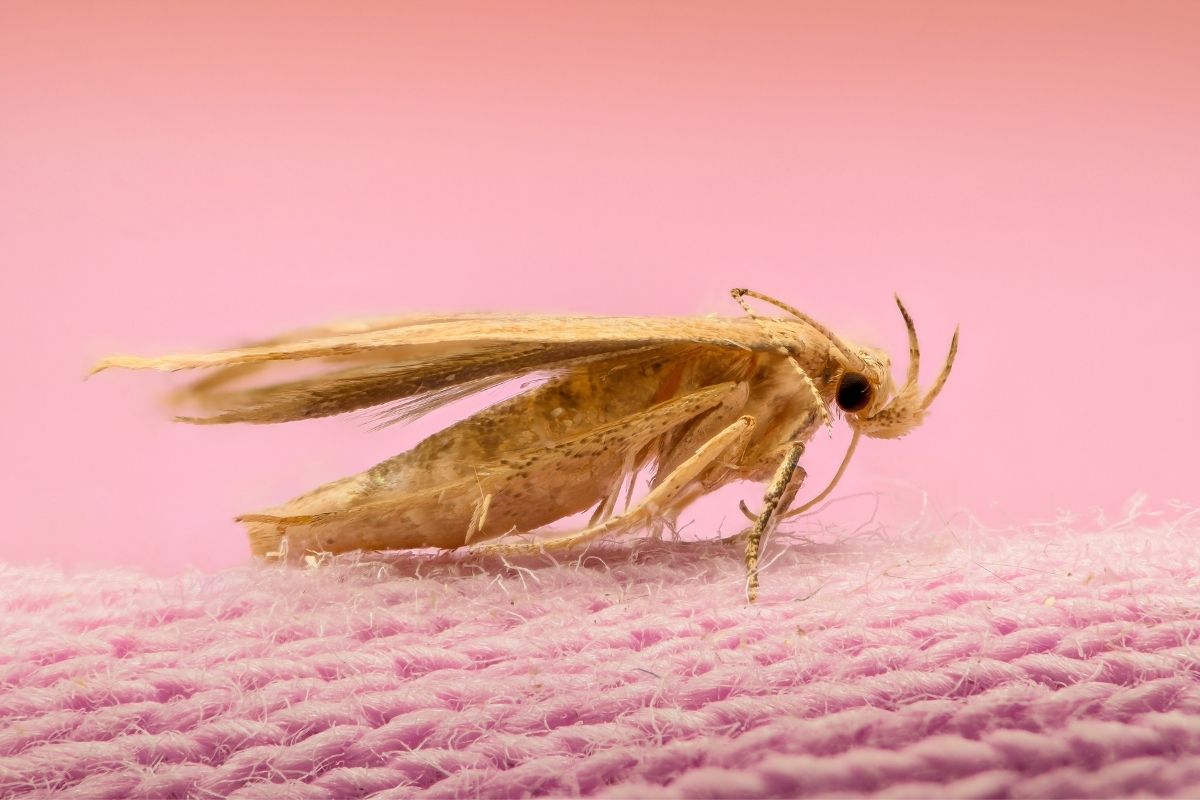
How do you get rid of moth? When you buy a new pair of shoes, you always get a small bag with beads with DO NOT OPEN in the box. Do you know what it is for? For months, of course. Moths can be real little temptations. Of course, they are harmless to humans, although…
-
How Do You Get Rid of Earwig?
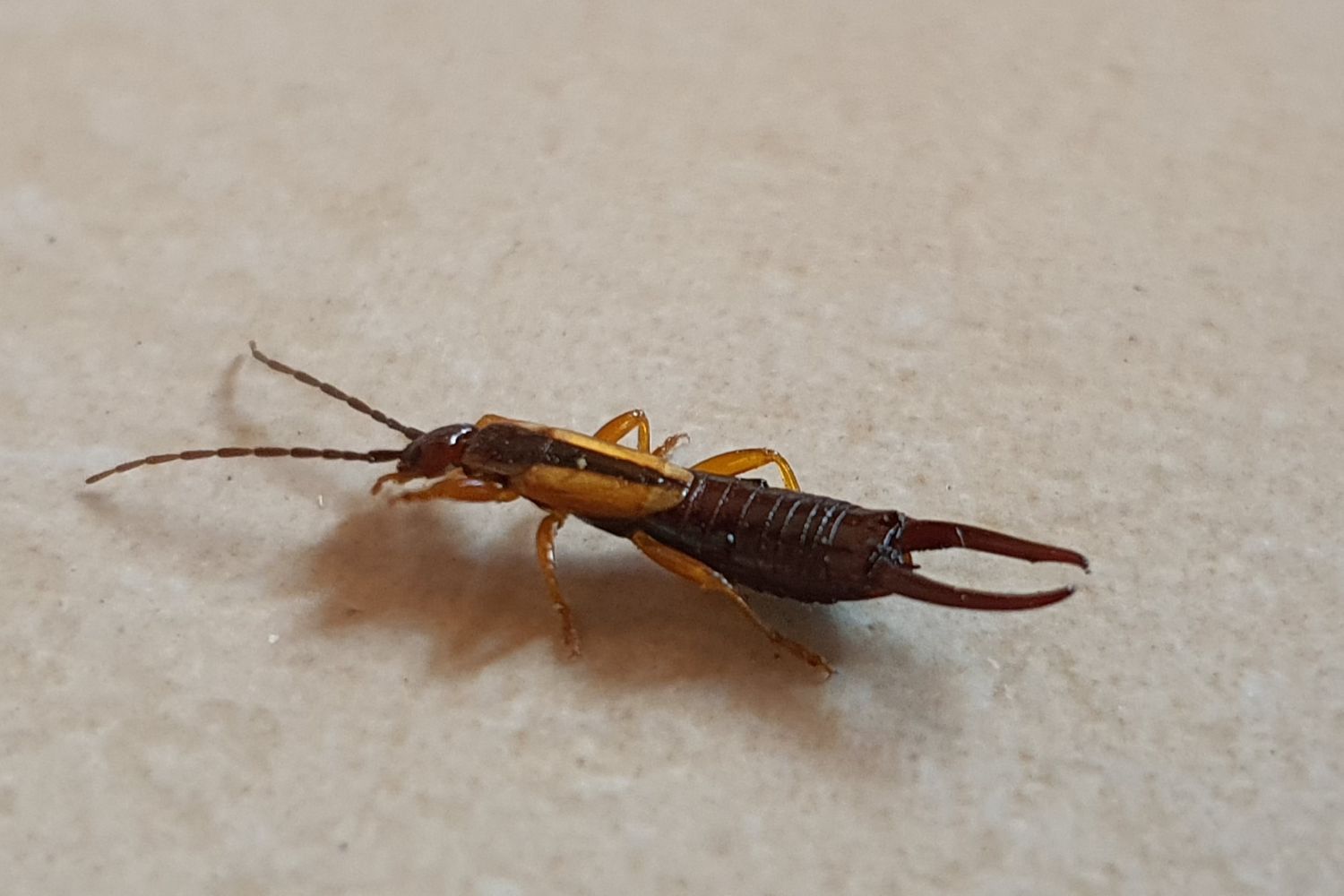
How Do You Get Rid of Earwig? Did you hear that earwig can crawl into your ear? No, they can’t. It is just a myth. Earlier it was believed that an earwig enters the ear, so this bug got its name from it, the ear wiggler. In Germany, it is called an earworm. These bugs…
-
Where to sleep if you have bed bugs?
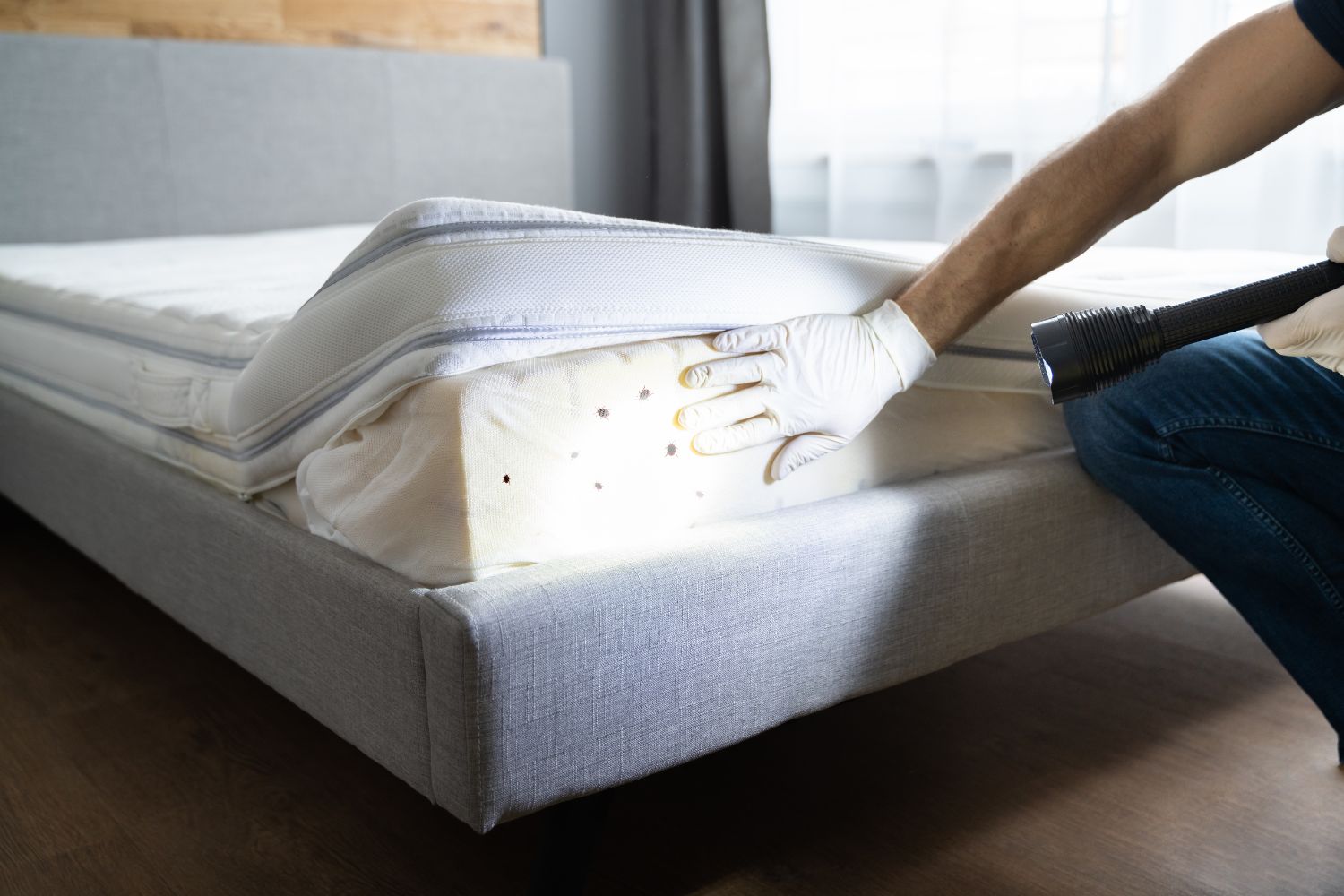
Are you looking for sleeping options if you have bed bugs? But where to sleep if you have bed bugs? Discovering that you have bedbugs can make you and your household panic. Bed bugs are reddish-brown parasites that feed on humans and animals. So you and your pets can be at the mercy of bed…
